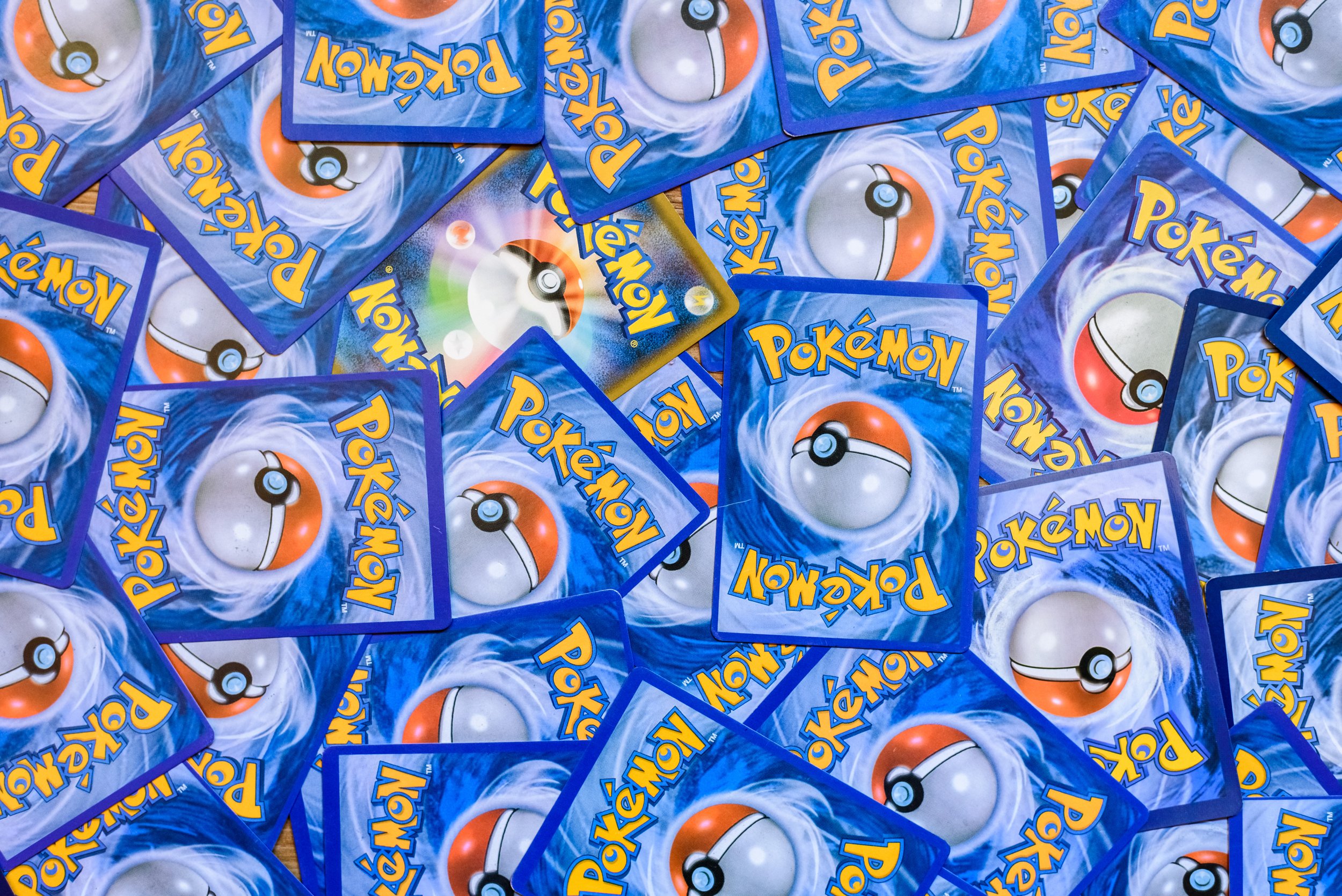Stress Management For Geeks and Gamers
What can video games and D&D teach us about stress management and dealing with crisis as a gamer
When we’re gaming, the concept of stress may look a lot different than in real life. But the physical sensations are much the same. It’s the dry throat you get after spending all your health potions fighting that big boss, only to see them morph into another monster and regain all their HP. Or feeling the sweat on your neck when your party has been sneaking through a dragon’s lair, and the GM suddenly tells everyone to roll for initiative. Stress happens when we face the unexpected or things happen that are beyond our control, whether it’s in a game or real life.
While we may find ourselves in stressful situations in games, they can be harder to deal with in real life. We can’t just lower the difficulty level to help us get through it, and most of the time, we can’t just turn it off and walk away. However, there are some skills that we can use to help us work through stressful situations wherever we may find them.
Play A Game
Sometimes the best way to deal with stress and anxiety is to distract ourselves from them. Whether gaming or binge-watching our favorite shows, taking a timeout to focus on more enjoyable activities can be a great way to deal with stress and anxiety.
And if you were looking for another reason to load up your favorite games to relax? Several studies have linked video games to positive therapeutic benefits for reducing stress, anxiety, and depression symptoms. Check out Can Gaming Help with Anxiety? for more on this topic.
“Even in dark times, we cannot relinquish the things that make us human.”
– Metro 2033
Connect with Others
Whether it’s talking with others over Discord, dinner conversations with family, or tv time with your partner, connecting with others can be a great way to manage stress.
According to the American Psychological Association, having a strong social support system can make us more resilient to stress. Many of us feel that we are battling our emotions alone in difficult times. Spending time with friends and family can help us feel supported and connected.
But we don’t have to have a close relationship to gain the benefits from feeling connected with others. Even online chats in video games or social media messaging can be helpful. When we learn that others have similar feelings and fears about a situation, it can help us accept and process our own emotions and feelings and relieve stress.
Put Down the Controller
Ever been in the middle of a great game, and the internet or the power goes down? It completely disrupts everything. That last save point was 20 minutes ago, and we just got this rare gear. We’re fuming and might even stare at the blank computer scene as if our will alone was enough to back it come back on. But eventually, we put the controller down and walk away.
Situations that are outside of our control can be very stressful. But whether it’s waiting to regain our game connection or dealing with a life-changing disaster, it’s important to realize when there is nothing you can personally do about it. To help deal with stress, know when it’s best to put down the controller for a bit and see the situation is outside of your control.
“Grant me the serenity to accept the things I cannot change, the courage to change the things I can, and the wisdom to know the difference.”
—Reinhold Niebuhr
Keep Your Gaming Night
Stressful situations can turn our lives upside down. According to UCLA Health, keeping a routine can help us give a sense of normalcy, even when dealing with a crisis. Routines can help us feel grounded from maintaining consistent mealtimes and keeping our regular work hours during stressful times.
But it’s not just the mundane activities in our routine that we should maintain. Often our first thought during times of upheaval is to cancel those activities that we enjoy but feel less important. Especially in a crisis, they may feel meaningless, but it’s actually the last thing we should do. When possible, keeping that regularly scheduled gaming night or D&D session can be very beneficial. The sense of community in gaming with other people, keeping to a routine, and the personal connections we create in gaming can help us reduce stress.
“The time to relax is when you don’t have time for it.”
—Sydney J. Harris
Roll On a Different Skill
Your party is facing a dragon that you are utterly unprepared for. Your weapons are useless against the beast, and you feel like there’s nothing you can do. But look around the room, maybe there another alternative, something else that you could do instead? Perhaps a history insight that might help to find a clue, a performance for distraction, even a chandelier and a decent aerobics score might come in handy to get out of this bind.
When faced with a situation where you feel helpless, think outside the box, and if there, you could choose a different skill? You may not be able to change that situation that has your team working late at work, but you could volunteer to be the runner to pick the food for the crew, making it a little more pleasant for everyone.
Even in a major crisis, you may feel small and helpless, but there may be small efforts that you can still help with. There may be fundraising efforts to help those that lost their homes in natural disasters or volunteer programs that you can help with to connect those that need help with aid programs.
In a stressful situation, are you truly helpless, or do you have other abilities on your character sheet that could still be put to use?
“Do what you can, with what you’ve got, where you are.”
—Theodore Roosevelt
Go AFK
In a video game, you know that you’ll need to face that BBEG eventually. And while some of the NPCs may mention it, you aren’t reminded of it every 5 minutes throughout the game. When dealing with stress in real life, it isn’t helpful to be constantly reminded of a difficult situation either.
Do other activities that you enjoy to distract your mind from the situation. Giving your brain something else to think about keeps you from putting those thoughts on constant rerun.
If it is a crisis situation, it is essential to remain informed. However, it is recommended to watch the news only a few times a day and disconnect from other online sources to help cope with stress. The idea is by limiting news and social media, we avoid the constant reminders and give our minds a chance to recover and reduce our stress levels.
Most news apps have notifications that you can set up that push any breaking stories so you won’t miss critical information while avoiding staying constantly connected. That obsessive tuning in also throws off our routines and can make us more stressed out. And news before bed can lead to poor sleep and further exacerbate symptoms of stress.
“Almost everything will work again if you unplug it for a few minutes, including you.”
—Anne Lamott
Remember Player One
When we’re stressed out, the person that we tend to forget about the most is ourselves. But taking care of our own needs and self-care is one of the most important things when dealing with stress.
Trust Your Feelings
During times of stress, our minds are racing, and we may find ourselves with strong emotions. Anger is very common, but beneath it may be feelings of unworthiness, confusion, and shame.
Especially in times of crisis, many of us isolate ourselves, unwillingly to share our emotions with others. We feel guilty for our fear when seeing others in worse situations than ourselves. But our feelings are still valid, and it’s okay and natural to feel afraid in times of stress. Acknowledging our feeling and knowing that they are shared with others reminds us that we are not alone.
“The best thing one can do when it is raining, is to let it rain.”
—Henry Wadsworth Longfellow
Pull Yourself into the Present
Stressful situations can cause us to feel overwhelmed and send our thoughts spinning. Our minds get stuck in this loop of negative thoughts and add to our anxiety. Being more focused on the present can help us break out of the stress loop. Try one of these 12 Centering Techniques for Gamers When Dealing with Stress and Anxiety for ways to help break out of the stress cycle.
Stay on Target
In times of stress, many of us lose our motivation and a sense of purpose. Especially in a crisis situation, it may feel that our projects and creations feel insignificant on a grander scale. While it may feel that way in the short term, it’s actually the opposite in the bigger picture.
Those that actively pursue their dreams are happier, more positive, and future-oriented. And these traits make us better equipped to handle stressful situations and better able to find solutions to deal with difficult problems. Research has shown that having meaningful work can make us more resilient in a crisis or other stressful situations.
“We ourselves feel that what we are doing is just a drop in the ocean. But the ocean would be less because of that missing drop.”
—Mother Teresa
HALT
Sometimes we’re so caught up in the moment that we don’t realize how much stress we are under. It can be helpful to take a step back and check-in with ourselves.
The US Dept of Health and Human Services uses the HALT anagram for disaster responders to increase their self-awareness of stress in traumatic situations.
The HALT system stands for:
· Hungry
· Angry
· Lonely
· Tired
According to the Disaster Technical Assistance Center (DTAC), when we have any of these physical responses to a situation, it may be a sign that we are dealing with too much stress, and it’s time to take a timeout. If possible, step out of the situation and focus on self-care.
This includes caring for your physical body, such as getting enough sleep, healthy meals, and exercise. As well as emotional support such as communication and mental health support from others.
Dial It Back
Even when not personally involved in a crisis but still supporting or watching those that are, it’s natural to be still stressed out. We are empathetic towards their plight and often identify with their situation. We imagine ourselves or our loved ones in those situations and feel personally invested.
Empathy is an important element that connects us with others, builds community, and is the basis of compassion. However, that empathy can contribute to significant stress and anxiety.
Crisis workers and first responders use a practice called “dial down exercise” to help maintain a personal boundary. And while it may feel like denial, it’s not. It’s a healthy coping strategy to balance our human need to help others while protecting our mental health.
Image your emotions on a dial. Completely calm is on one side, and maximum anxiety is on the other. Visualize yourself dialing down your stressed feelings to a lower level. It can be helpful to take slow, deep breaths and imagine a place or person that makes you feel calm and happy while doing so.
“Some days, doing ‘the best we can’ may still fall short of what we would like to be able to do, but life isn’t perfect—on any front—and doing what we can with what we have is the most we should expect of ourselves or anyone else.”
—Fred Rogers
Get Help
Sometimes stress can become too much for us. Prolonged stress can lead to poor health, disorientation, social conflicts, and mental issues, including depression. If you find that you are having difficulty coping with stressful situations, it may be time to seek assistance from a therapist or mental health professional.
Signs of excessive stress include feeling overwhelmed, sleep difficulties, constant worry, poor decision making, depression and anxiety, and difficulties with memory and concentration.
Conclusion
Stress is a normal part of life. Things don’t always go as planned, and things happen that are beyond our control. But while we can’t turn off the game of life and avoid stressful situations, we can level up some of our skills to manage that stress healthily and help us to become more resistant to its effects in the future.
Author:
Laurie Trueblood is a writer and life coach that enjoys fantasy, science, psychology, and everything nerdy. As the founder of Adventures to Authenticity, her mission is to help others level up and become the best versions of themselves.
Read more about dealing with stress and anxiety. Check out 12 Centering Techniques For Gamers When Dealing with Stress and Anxiety and Can Gaming Help with Anxiety?













